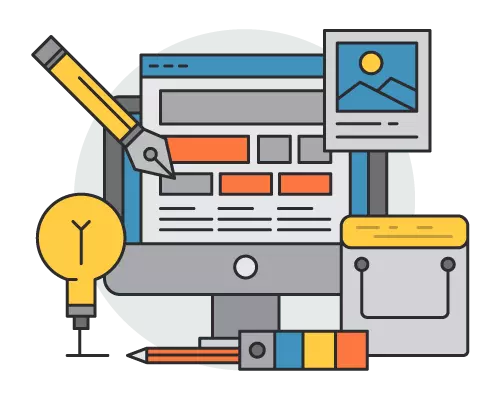No, web designers will not become obsolete anytime soon.
While automation tools and website builders have made it easier for non-designers to create basic websites, web designers remain essential for custom, high-quality, and complex projects.
Their creativity, technical expertise, and understanding of user experience (UX) ensure that web design will continue to be a valuable profession.
Why Web Designers Won’t Become Obsolete
1. Customization and Creativity
Automation tools like Wix and Squarespace are great for creating basic, templated websites, but they cannot replace the creativity and customization offered by professional web designers.
Businesses that require a unique, branded website that aligns with their vision will always need human designers to create something tailored to their needs.
2. User Experience (UX) Expertise
Web designers understand how users interact with websites, and they use this knowledge to optimize layouts, create intuitive navigation, and ensure a seamless user journey.
Automated tools lack the ability to fully customize user flows or improve user experience for complex websites.
3. Complex Functionality
Web designers and developers are needed for building custom features, such as:
- E-commerce platforms
- Interactive elements
- Booking systems
- Membership portals
These features require coding and customization that automated tools cannot handle without human input.
4. Branding and Identity
Web design is more than just creating a visually appealing site; it’s about conveying a brand’s identity through colors, fonts, and overall style.
Designers bring branding expertise that helps businesses stand out in a crowded market, something that off-the-shelf templates cannot achieve.
5. Continuous Evolution of Design Trends
Web design trends, tools, and technologies evolve quickly.
While automation may handle repetitive tasks, it cannot adapt to the latest design trends, evolving user behaviors, or the strategic goals of a business.
Human designers stay updated with these changes, ensuring websites remain modern and relevant.
How Automation Supports, Not Replaces, Web Designers
1. Efficiency and Speed
Automation tools, such as Webflow and Figma, help streamline the web design process by reducing the time spent on repetitive tasks.
Designers can use these tools to create faster mockups and prototypes, but their creativity and problem-solving abilities remain irreplaceable.
2. AI-Assisted Tools
Artificial intelligence (AI) is being used to assist designers by offering design suggestions or speeding up code generation.
However, AI is far from replacing the decision-making skills, creativity, and intuition required for high-quality web design.
The Future Role of Web Designers
- Hybrid Approach: Web designers will likely continue using automation tools to handle mundane tasks, while focusing their time on creativity, strategy, and problem-solving.
- Evolving Skillsets: As web design evolves, designers will need to learn new tools, stay updated on trends, and improve their skills to meet the growing demands of businesses that require more sophisticated websites.
Conclusion
While some aspects of web design may be automated, web designers will not become obsolete.
Their expertise in creativity, branding, UX, and complex functionality ensures that they will remain essential in the web design industry, especially for businesses seeking custom solutions.

















